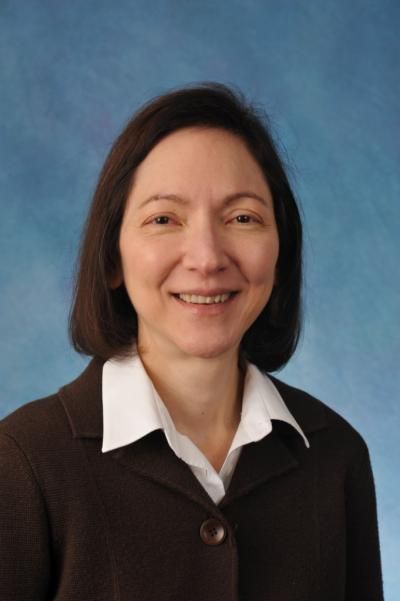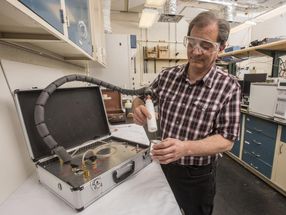Margaret Gourlay wins Top 10 Clinical Research Achievement Award from Clinical Research Forum
For leading a study that was the first to define appropriate bone density screening intervals for older women, Margaret Gourlay, MD, MPH, of the University of North Carolina School of Medicine has been honored with a Top 10 Clinical Research Achievement Award from the Clinical Research Forum.

This is Margaret Gourlay, MD, MPH, of the University of North Carolina School of Medicine, who has been honored with a Top 10 Clinical Research Achievement Award from the Clinical Research Forum.
UNC School of Medicine
The winning projects are compelling examples of the scientific innovation that results from the nation's investment in clinical research that can benefit human health and welfare.
Gourlay's study, published in the New England Journal of Medicine in January 2012, calculated time estimates that doctors can use for bone density screening in primary care practice, based on a woman's first bone density T-score at age 65 or older. The study found that when women had good T-scores on their first test, it took about 15 years for 10 percent of them to develop osteoporosis. But women with lower T-scores on their first test developed osteoporosis sooner -- it took about 1 to 5 years for 10 percent of them to develop osteoporosis.
"Dr. Gourlay's study has proven to be very influential in the field of bone and mineral research, and it has the potential to change the way doctors order bone density tests," said Eugene P. Orringer, MD, a professor of medicine at UNC who nominated Gourlay for this award.
"The results should help doctors target the bone density screening so that they test patients with lower T-scores and thinner bones more frequently. The results also mean that older women with very good bone density on their first test don't need tests to be performed nearly as often as was originally thought," Orringer said.
"These achievements are beacons of hope that show what can be accomplished when our nation's researchers are given the freedom and resources to tackle tough clinical problems," said NIH Director Francis S. Collins, MD, PhD. "The opportunities for advancing clinical research have never been better. So, we at NIH look forward to doing everything we can to light up more of these beacons for the millions who look to us for help."
Other news from the department science

Get the life science industry in your inbox
From now on, don't miss a thing: Our newsletter for biotechnology, pharma and life sciences brings you up to date every Tuesday and Thursday. The latest industry news, product highlights and innovations - compact and easy to understand in your inbox. Researched by us so you don't have to.



















































